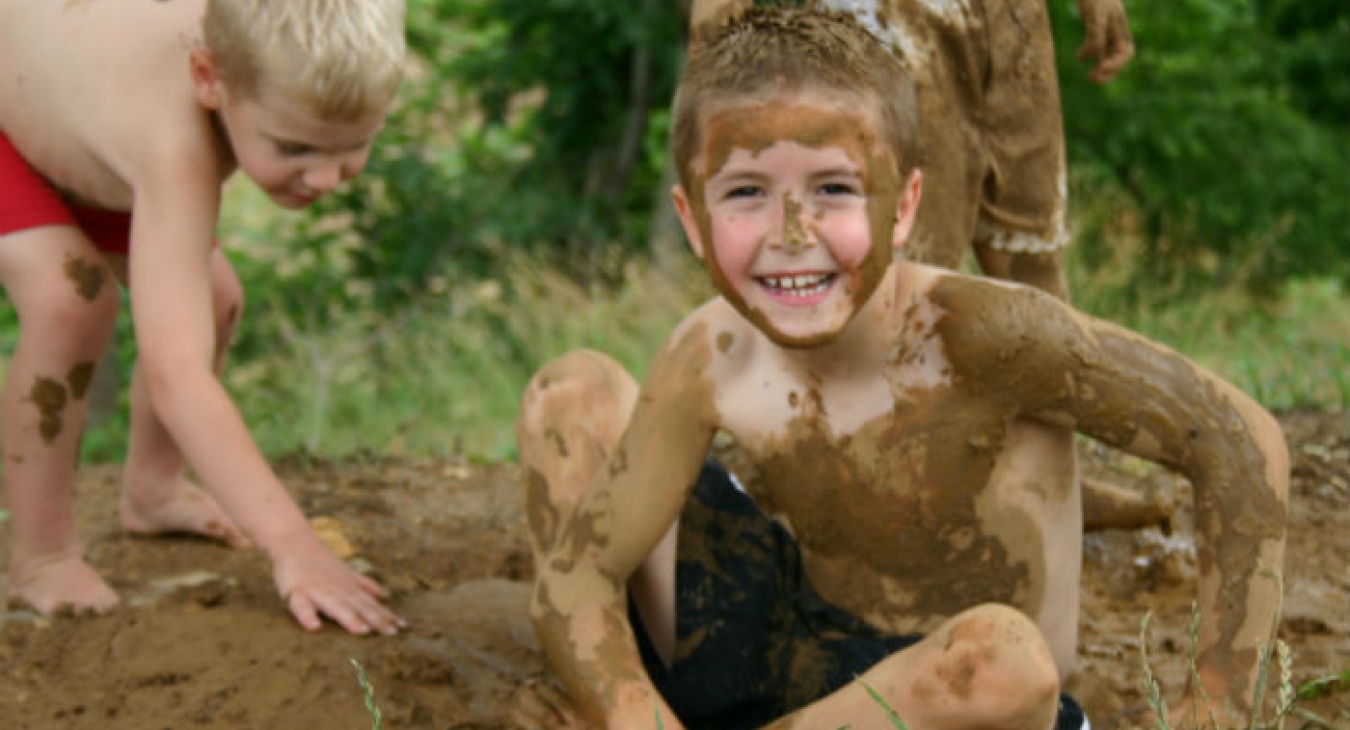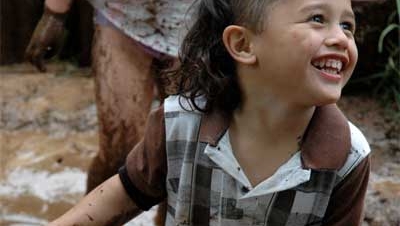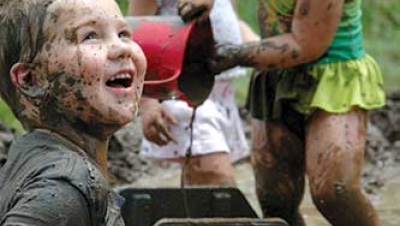We need to overcome barriers to outdoor play.
The Wild Network compiled the following list in hopes that we can overcome these barriers and put kids back where they belong -- playing in Nature.
The Wild Network is a UK-based organization that promotes 'wild time' for children. This time is spent outdoors, roaming free, exploring nature and escaping the insidious allure of screens, but few children are able to enjoy it these days.
We write a lot about this topic on TreeHugger, encouraging parents to loosen their kids' schedules, relax the rules around supervision, and trust their kids to look out for themselves. But sometimes it's not just about letting go; it's also about overcoming the barriers that have been constructed in our society that hinder children's ability to roam free.
The Wild Network has compiled a list of what it sees as the '11 profound and systemic barriers that actively prevent us all from getting Wild Time.' By understanding what these barriers are, it becomes easier to overcome them, thus giving our children what they so desperately need. But, as you'll see, some of these are difficult to overcome alone. They require whole communities and educational systems to change their mindsets.
There are four categories:
Fear:
Stranger danger
Parents' fear of potential kidnapping has cut kids' roaming distances to 10 percent of what they once were a generation ago, despite this fear being largely driven by the media, not statistics.
Risk-averse culture
Parents must be careful with the words they use around their children. Constant warnings create a sense of fear surrounding the most ordinary of activities, like playing tag, wrestling, or swinging. Stand back and let the kids be.
Dangerous streets
Many neighborhoods are not safe for children to play, with gang violence, harassment, and drug use happening all around. The Wild Network asks, "How can we work to create a feeling of safe neighborhoods and safer places for kids, as they grow? How can we let them be free, but feel safe?" Communities need to find a way to provide safety for their resident children, whatever form that may take.
Car-lamity
Cars are the leading cause of death for children in the U.S. between one and 16. Parents have a right to be worried, but this is something they cannot tackle alone. What's required are new laws forcing cars to slow down, better pedestrian-friendly infrastructure, and bike paths, as well as consistent law enforcement.
Time:
Time-poor parents
Parents are so busy with work and lack of childcare support that it's hard to find time to take kids outdoors. And yet this needs to be a priority. Without exposure to the wilderness, how will kids learn to love it?
Nature-starved curriculum
Schools could be a good substitute (in part) for parents who are too busy to go outside, but the curriculum is sadly lacking outdoor components. One thing schools could do immediately (at least in Canada, where I live) is start sending kids out for recess, rain or shine, instead of having automatic indoor recesses as soon as the weather turns bad.
Lack of free-range play
Pardon the crude comparison, but think of buying meat. When it comes to chicken, "We know that free range is better than battery." So why do we keep our kids cooped up like battery hens? This becomes a human rights concern, especially when kids are getting less outdoor time each day than prison inmates.
Space:
Vanishing green space
We need to protect the green spaces the remain in our cities since they are vanishing to developers and slashed municipal budgets at a rapid pace. Even the smallest corner, with grass, trees, flowers, and insects, can be a learning space for children.
Play INC.
Children's play is now viewed as a business, and yet it does not have to be.
"The natural world offers mystery, creativity, and gameplay for free and in abundance. It does, however, require guides, mentors, catalysts and time to develop a connection, relationships, wonder, and awe."
So instead of taking your kid to the indoor playground, the gymnastics club, or the swimming pool, take him or her on a long hike. Don't spend a cent, but come away feeling rewarded and refreshed.
Kidvertising
A plethora of material belongings can make Nature seem dull by comparison. Don't let that happen to your child. Keep them in constant contact with the outdoors so that they can retain perspective on how nature never grows old, but toys go out of style.
Technology:
Rise of screen time
The Wild Network sees screens as the #1 barrier to kids playing outdoors, but they're not going away anytime soon. It's of utmost importance for parents to establish balance between our screen-addicted culture and a connection to the outdoors. Turn it off. Set limits. "Make time for Wild Time, offline, outside, liking other stuff like plants, trees, the sun, the rain and all the cool creatures."








